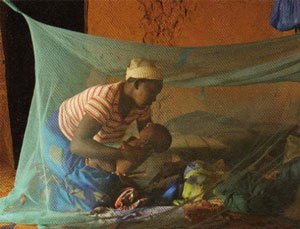
HURUNGWE — Half the population of Zimbabwe is at risk of being infected with the third most common illness, malaria, which has wreaked havoc in communal areas.
BY OUR STAFF
Speaking at commemorations to mark Sadc Malaria Day at Chitindiva Primary School in Hurungwe, Health and Child Care minister, David Parirenyatwa called for collaborative efforts within the region to combat the disease.
“Malaria accounts for between 30-50% of those that visit the outpatients department in our clinics and hospitals in the high-risk areas,” he said. “Hurungwe is among the top 10 malaria transmission districts in the country, hence the choice of the district for the commemoration of this day is very appropriate,” the minister said.
Since the beginning of the year, 326 people have died from malaria while 386 505 cases have been reported countrywide.
The increases have largely been attributed to limited funding towards the mitigatory measures to stem further cases of malaria.
Joseph Mberikunashe, the programme manager of the malaria control unit, said delays in the distribution of mosquito nets in Manicaland and Mashonaland Central have contributed to the increase in the incidences of malaria.
Some members of the community interviewed revealed that they were selling their mosquito nets instead of using them while others transformed them into fishing nets.
- Chamisa under fire over US$120K donation
- Mavhunga puts DeMbare into Chibuku quarterfinals
- Pension funds bet on Cabora Bassa oilfields
- Councils defy govt fire tender directive
Keep Reading
“Some of us sell the mosquito nets to make a few dollars. There is widespread poverty in these areas and sometimes you weigh the situation and you are forced to make such decisions,” said Patrick Chigora from Chitindiva village.
Another villager said some traditional beliefs were also hindering the mitigatory efforts by the government and its development partners.
“Some people do not believe there is malaria and still link the symptoms to witchcraft. When one has malaria they sometimes hallucinate and people generally attribute such behaviour to witchcraft,” said the villager.
Chief Chundu urged the villagers to use the mosquito nets as instructed and called for them to co-operate with the teams that move around spraying their homes.
“Let us all work with those that are seeking to help us stamp out the disease which has claimed our friends and relatives,” he said.











